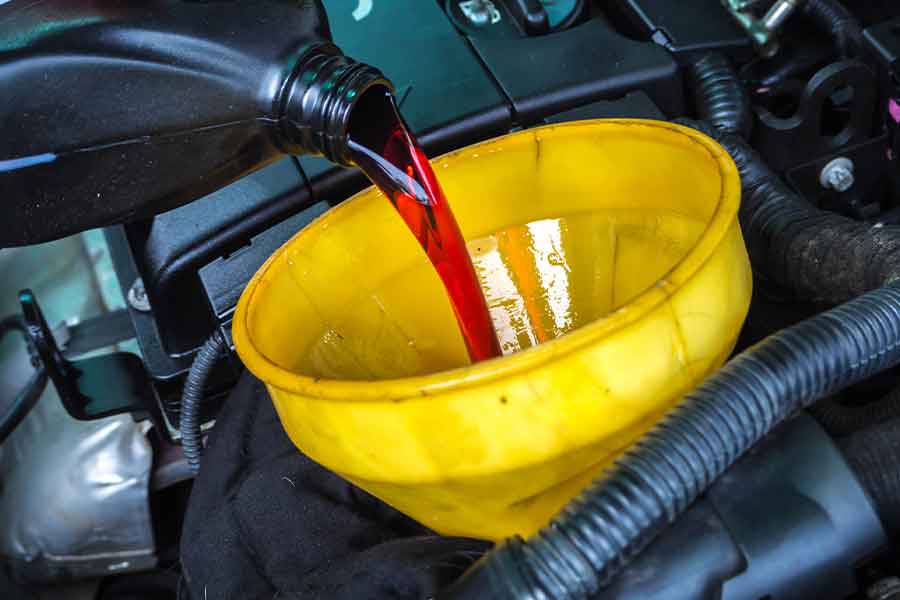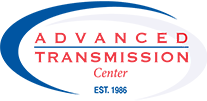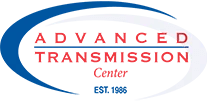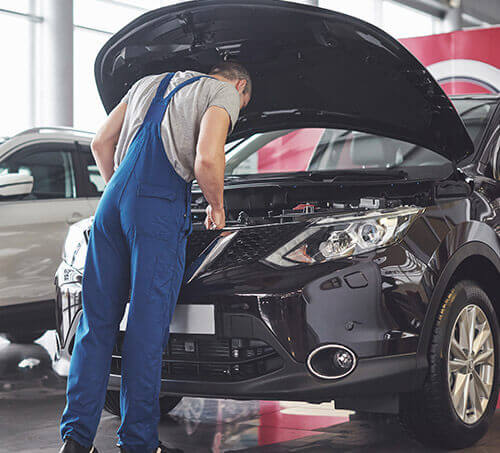
There are TEN QUESTIONS that help answer the dreadful question, “What is the cost of transmission repair?” Transmission repair or replacement is among the costliest activities conducted at automotive service and repair shops, so it is a scary question for any vehicle owner to consider. The final invoice for a customer can range between a few hundred dollars to nearly $10,000! Luckily, most vehicles requiring transmission repair face a bill far less than the high extreme.
Regardless of what research someone does online, the real answer to the question is unknown. Calling various transmission shops and “price shopping” is a surefire way to get a low-quality shop to throw out a low quote and a poor rebuild. A failing transmission will require an in-house rebuild at an independent transmission shop or a remanufactured transmission. The latter is similar to an in-house rebuild, except the unit is refurnished in a factory setting rather than locally. Quality standards might vary in a factory situation where individual rebuilders face less accountability than at local repair shops. Rarely are “new” transmissions available 5+ years after vehicles were originally manufactured and those vehicles need time to accumulate 100,000+ miles. If someone offers you a “new” transmission, a red flag should go up immediately.
Nevertheless, it helps to get some broad estimate of what a transmission repair (rebuilt or remanufactured) might cost before blindly trusting a shop to tear the unit down and call you with a bill! The questions below will provide some range for transmission repair cost.
1. What’s the age of the vehicle?
Repairing the transmission of older vehicles is usually less expensive than repairs for newer vintage vehicles. The complexity of the design for cars or trucks in the 1950s through 1970s was elementary compared to designs from the most recent few decades. The most expensive input costs for transmission repairs, parts and transmission fluid, are more reasonably priced for older vehicles and remain readily available if you cast a wide net across the United States. Older transmissions were also designed to only go 40,000-50,000 before a customer in the 1980s expected to spend a few hundred dollars for a full transmission rebuild. Add a zero to the end of that repair from the 1980s and that gives a better sense of what costs look like today for a modern transmission. Many units like a TH-350, TH-400, C4, C6 or 700R4 could cost as little as $1,500-$3,000 installed!
Also, older units have less electronics which tend to be extremely expensive. The electric complexity of modern transmissions adds higher parts cost and labor hours for repair. Many 6-speed transmissions on passenger vehicles can cost over $4,000 for a transmission rebuild!
2. What’s the make of the vehicle?
Some manufacturers tend to have transmission repairs that are more costly than others. Input costs such as parts and fluid are not the only factors. Labor costs often account for roughly 50% of an in-house transmission rebuild invoice. If transmissions are more difficult to remove from and install back into a vehicle, that will add to the cost. Volvo, for example, has a reputation for producing safe vehicles. They also have a reputation for designing transmissions that are difficult to remove, disassemble, rebuild and install. Toyota is another brand that most consumers associate with quality. As much as that might be true, a transmission rebuild or replacement for Toyota vehicles tend to be higher in costs than other major manufacturers of vehicles. The same can be said of Subaru and Nissan.
That does not mean domestic transmissions such as Dodge, General Motors / Chevrolet or Ford are cheap! Older transmission models for domestic brands were certainly more economic years ago. Over the last 15 years, domestic manufacturers integrated more gears into their automatic transmissions and that marked the beginning of the end of “cheap” transmission repairs! A 2010 Chevy Malibu, for example, could have a transmission repair bill between $3,800-$4,600. Even though this range might surpass the value of the vehicle in this situation, it is important to remember the value of maintaining a vehicle over a long period of time and avoiding the risk of purchasing a used unit with an imminent, and costly problem.
3. What type of transmission came with your vehicle?
Automatic transmissions are generally more expensive to repair than manual transmissions. With countless additional moving pieces, an automatic transmission requires a higher level of technical expertise. It also comes with a longer list of parts to achieve a quality rebuild. The fluid is also more complex than the more basic gear oil found in manual transmissions and differentials.
Adding another level of complication, one sub-category of automatic transmissions, introduced roughly two decades ago and more commonly used in dozens of passenger vehicles, is the continuously variable transmission (CVT) or shiftless transmission. These transmissions have a spotty performance record in various geographies and that holds especially true in high elevation Colorado. Most independent repair shops and many large national remanufacturers will not repair these belt and pulley system transmissions. The combination of electronic issues in certain models, aftermarket parts availability, tendency to overheat without sufficient heat management and inability to handle applications beyond light duty, all contribute to CVT replacement recommendations rather than rebuild suggestions. Often estimates range from $4,000-$6,000 in some Nissan and Toyota vehicles to well over $7,000 in many Subaru models.
4. Was the transmission regularly maintained with fluid and filter changes?
The most important yet neglected major component in a vehicle is the transmission. The maintenance requirements are often misunderstood causing premature failing of the unit. Vehicle manufacturers are cheering for this to continue because in many cases, a failed transmission quickly turns into a new vehicle sale! Consumers should know better.
Most vehicle owners recognize the importance of regular engine oil and oil filter changes. It’s so common, engine oil producers will spend hundreds of millions of dollars on commercials to convince consumers on their couch to use their fluid in their vehicle’s next oil change.
But when was the last time you saw a transmission fluid or transmission service commercial? It’s rare and it becomes costly for many vehicles that could last 200,000 or 250,000 miles, but instead those cars and trucks are sent to the junk yard at lower mileage relative to those vehicles achieving a longer operating life because the fluid was changed at a regular interval.
Regular maintenance of the transmission can not only delay failure of the transmission, it can keep the costs down once that day arrives and a transmission specialist tells you, “I’m afraid you need to rebuild your transmission.” If this does happen, at least a vehicle owner can be confident many of the hard parts are intact because the fresh fluid regularly introduced to the transmission did its job to regulate temperature and protect most of the durable parts within the transmission.
5. What’s the application of the vehicle?
Heavy duty activities such hauling or towing will easily make a transmission repair bill skyrocket. These activities place extra demand on the transmission and in the process generate substantial heat. Over time, fluid quality might deteriorate and its ability to manage overheating conditions will diminish.
These situations can be worrisome because the entire transmission may be operating close to normal, yet the internal condition of the unit is in disarray. Countless parts show significant wear and an in-house transmission rebuild could be astronomical. In these situations, it may be ideal to buy a remanufactured transmission and send your old one back to the remanufacturer to get back your core payment!
Most customers have normal applications for their vehicles which make the repair cost of a transmission reasonable for a major vehicle repair. An in-house rebuilt transmission at a local specialty shop normally runs between $2,750-$4,500. The large range is normally attributed to the difference in parts costs and availability.
6. What’s type of symptoms are present with the vehicle?
There’s a big difference between an operating vehicle with a few drops of transmission fluid underneath versus an immobilized vehicle that won’t move. The symptoms of a failing transmission can vary significantly in severity. This is why it’s extremely important to frequently service a transmission and act swiftly if the slightly sign appears of a transmission issue.
A check-engine-light (CEL) may appear that indicates a problem within the transmission. In some cases, it can be a serious sign of failure such as a Gear Ratio in 2nd. However in other cases, a solenoid block, PRNDL switch, or speed sensor might have an electrical failure that can be addressed by a minor repair. Over time, the window to fix a transmission with a minor repair diminishes and those small issues ultimately cause an internal failure costing thousands of dollars.
One of the most common failures in a transmission is “slipping.” This normally occurs when automatic clutches lose their friction material and gears are more difficult to engage due to the lack of abrasive material. A vehicle with high mileage will inevitably have this issue. However, if not addressed immediately, non-wearable components like planetary gears and drums (“hard parts”) may fail which can lead to a transmission rebuild being 50% higher than one where only the consumable components and torque converter needs to be replaced.
7. What’s the mileage of the vehicle?
Transmissions are wearable components. It’s not a question of if but rather when a vehicle’s transmission needs to be rebuilt. Vehicles with high mileage that are maintained with regular fluid service may face an economic rebuild. On the other hand, vehicles with low mileage dealing with demanding applications could require a premature major transmission repair.
Generally, higher mileage cars and trucks end up costing more to repair, all else being equal. Many of the “hard parts” within a transmission become “marginal” after 150,000 miles. This means they realize some level of deterioration. In these cases, it is better to replace these parts rather than reusing them within a rebuild that could leave a customer stranded on the side of the road.
This explains why all transmission repairs or transmission rebuilds are not the same. Judgement matters. Many shops that try to save money and cut costs will keep as many old parts as possible, even the borderline ones. Advanced Transmission Center and other elite independent transmission repair shops will proactively change out components to ensure the transmission specialists feel confident standing behind their work. It’s not a “cheaper” approach but in the case of a transmission, you often get what you pay for.
8. How long has the vehicle shown symptoms of a failing transmission?
If you suspect a transmission problem, get it inspected immediately! Ignoring a lingering problem is a guaranteed way to skyrocket your repair bill. Quickly getting a vehicle to a local transmission shop can potentially allow a minor repair to fix the problem. If left unresolved, erratic shifting and failure to maintain appropriate internal fluid temperature will lead to a transmission overheating. That process causes tremendous damage to a transmission and should be avoided.
Many modern transmissions that are electronically controlled may realize it has a problem and go into a “limp mode” or “safe mode.” This feature allows a driver to cautiously drive their vehicle to a local transmission repair shop to address the issue. In some cases, a quick fix can get the vehicle operating successfully. In other situations, a major transmission repair could be required. Regardless, operating a vehicle that frequently goes into limp/safe mode is a risk not worth taking.
The cost of a transmission repair can double if early symptoms are disregarded. Our team suggest getting a transmission inspection completed every year with a fluid replacement service every 20,000 miles or so.
9. What level of quality is desired with the repair?
Do you want a patch job or a quality repair? These days consumers want all options available. That’s a good thing as long as customers clearly know what they are getting for their money. Unfortunately, transparency is not a common characteristic of the automotive repair industry. Many customers might make their decision solely on price. Unfortunately, an “affordable transmission repair” might put you and your pocketbook at risk.
A quality repair takes skilled technicians, quality parts and a robust rebuild strategy that often times is not the cheapest option. However, it is the reliable and responsible option to maintain the longevity of your vehicle.
Many “backyard” or “driveway” mechanics will claim they can provide a rebuilt transmission for $1,000-$2,000. These transmissions rarely have the thorough and quality rebuild demanded from customers.
It is also important to recognize the importance of a comprehensive transmission warranty when dealing with major automotive repair. Not all warranties are the same so choose a business with a strong track record, excellent customer reviews and a commitment to cover parts costs, labor expense and local tow service!
10. What type of automotive repair shop addresses the transmission failure?
If you crave donuts, do you go to a gas station or Dunkin Donuts? If you need your lawn trimmed, do you call a landscape architect or a local lawn service company? In both cases, opt for the latter. The rationale is no different in transmission repair. Work with a transmission specialist that can advise on the specific issues at hand and refer you to a general automotive mechanic if that’s what your vehicle needs.
Total car care facilities have a tremendous breath of knowledge; however, their specific expertise on the internal components of a transmission is normally lacking. Normally when a general automotive repair shop suggests a rebuild or replacement, the diagnostic work is elementary relative to a specialty shop that focuses on a few components (transmission, transfer cases, differential, drive shaft, axles, etc.) all the time.
A local transmission shop has the capabilities to build a transmission, transfer case or differential in-house. General automotive shops often lack the depth of knowledge required for transmission repair and installation of a used or remanufactured unit.
Why Getting Transmission Pricing Over the Phone Isn’t a Good Idea
So, you are driving around town, and your car begins to act funny. You notice issues like delayed acceleration, erratic shifting, or your car going into “limp mode.” Your instinct tells you it could be an expensive problem, and different sources confirm it’s a transmission issue. The natural response is to call multiple shops to get estimates over the phone.
However, modern transmissions are incredibly complex, making it difficult to accurately diagnose the problem without inspecting the vehicle. Online transmission pricing may be misleading, as many issues mistaken for transmission problems can be caused by electronic or other drivetrain components.
Reputable transmission shops offer comprehensive inspections, like Advanced Transmission Center’s TrueTest transmission inspection, to determine the exact issue and provide appropriate repair options and cost estimates. Relying solely on transmission pricing obtained over the phone can lead to misdiagnoses and unnecessary expenses.
The Advanced Transmission Center Difference
The teams at Advanced Transmission Center take pride in being transmission specialists focused on recommending and performing the needed repairs and maintenance services to ensure your vehicle’s longevity and reliability. We prioritize customer education to help vehicle owners achieve responsible and economical vehicle ownership. We understand the price of a transmission repair has increased over the years, so we continue to INVEST in training to achieve accurate diagnoses. When it’s time to call your local transmission repair shop, we have multiple locations to serve our established and expanding customer base. You can reach out to either location that is most convenient for you.
Advanced Transmission Center is a Colorado-owned and operated auto repair shop with locations in Denver / Lakewood and Westminster. ATC specializes in driveline issues such as automatic transmission repair, four wheel drive repair, clutch replacement, differentials, manual transmissions and CVT. As Colorado's first AAA approved shop our goal is to provide accurate, timely service with exceptional customer satisfaction. All of our technicians are certified in the latest makes and models and we are one of the few transmission repair shops with a nationwide warranty.



 Free Customer Towing Service
Free Customer Towing Service  Free TrueTest™ Inspection
Free TrueTest™ Inspection  Fast Transmission Services
Fast Transmission Services  Comprehensive Warranty in Denver
Comprehensive Warranty in Denver 

























